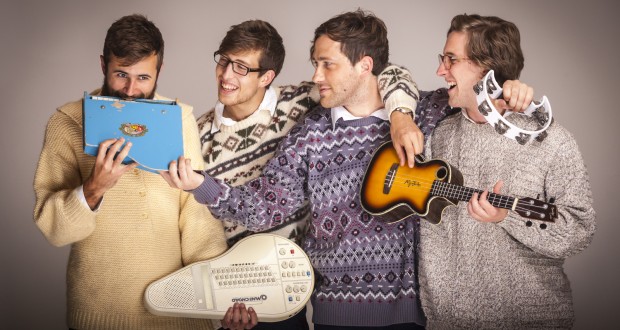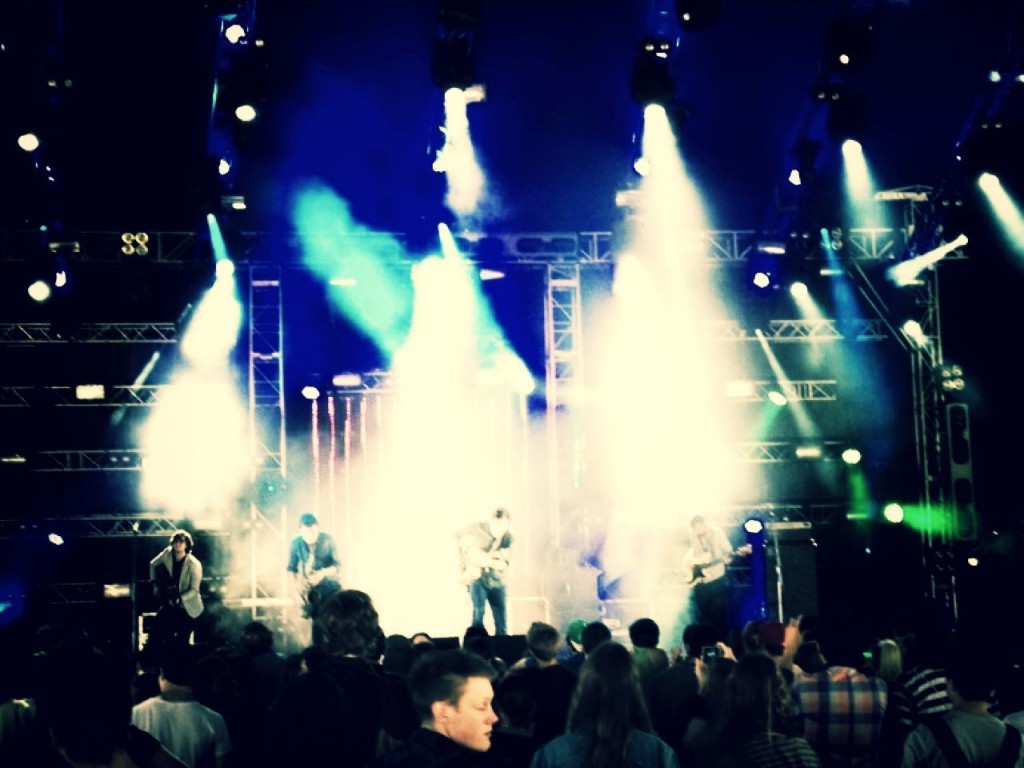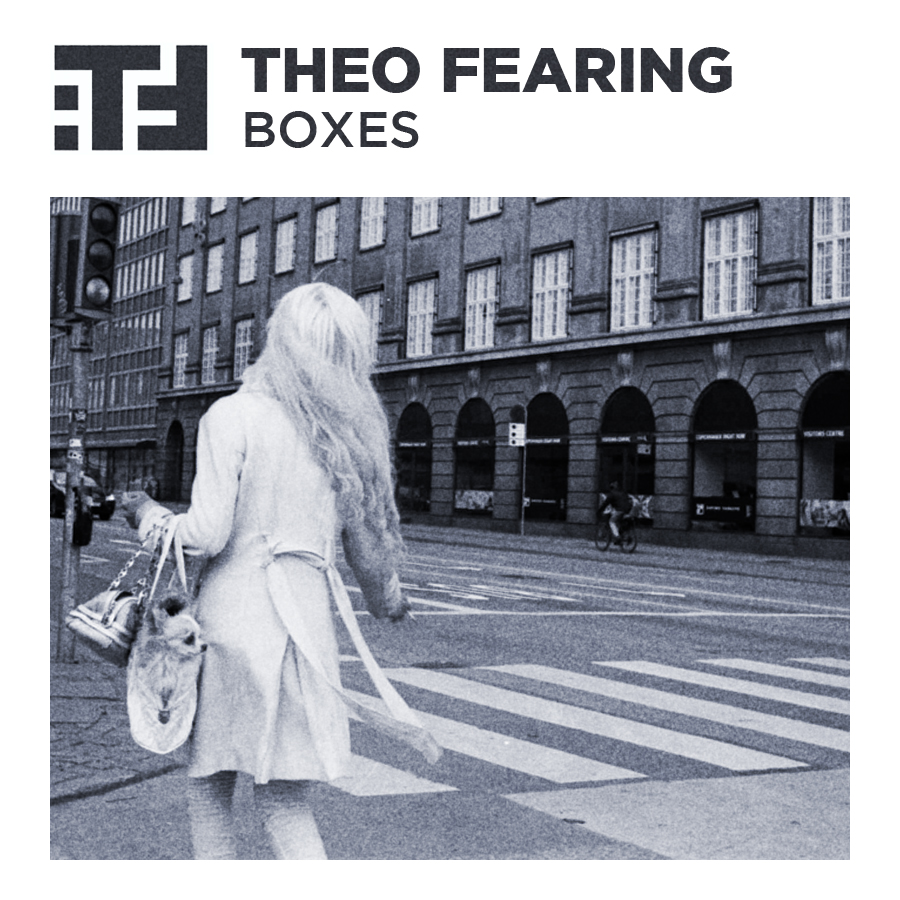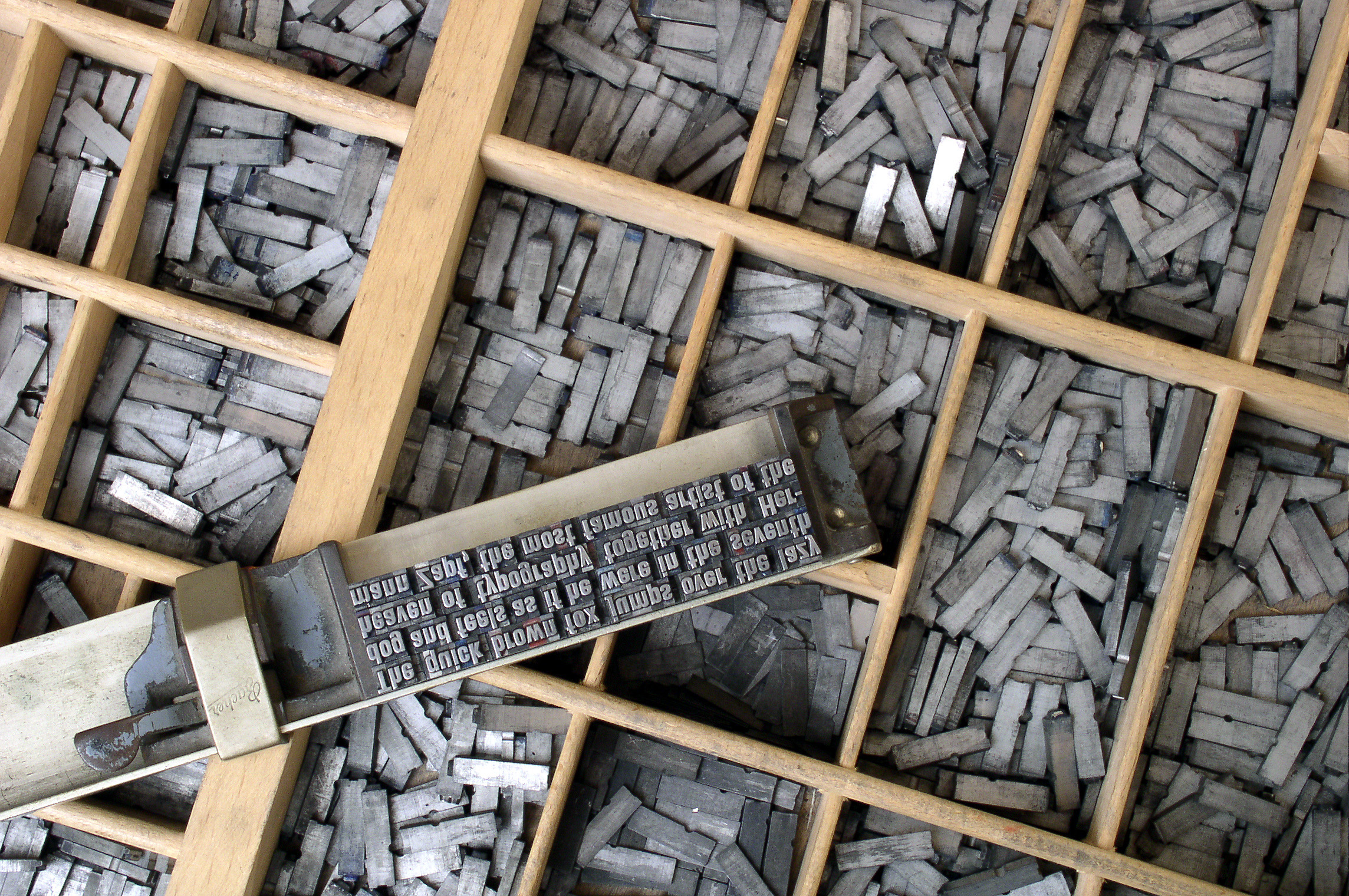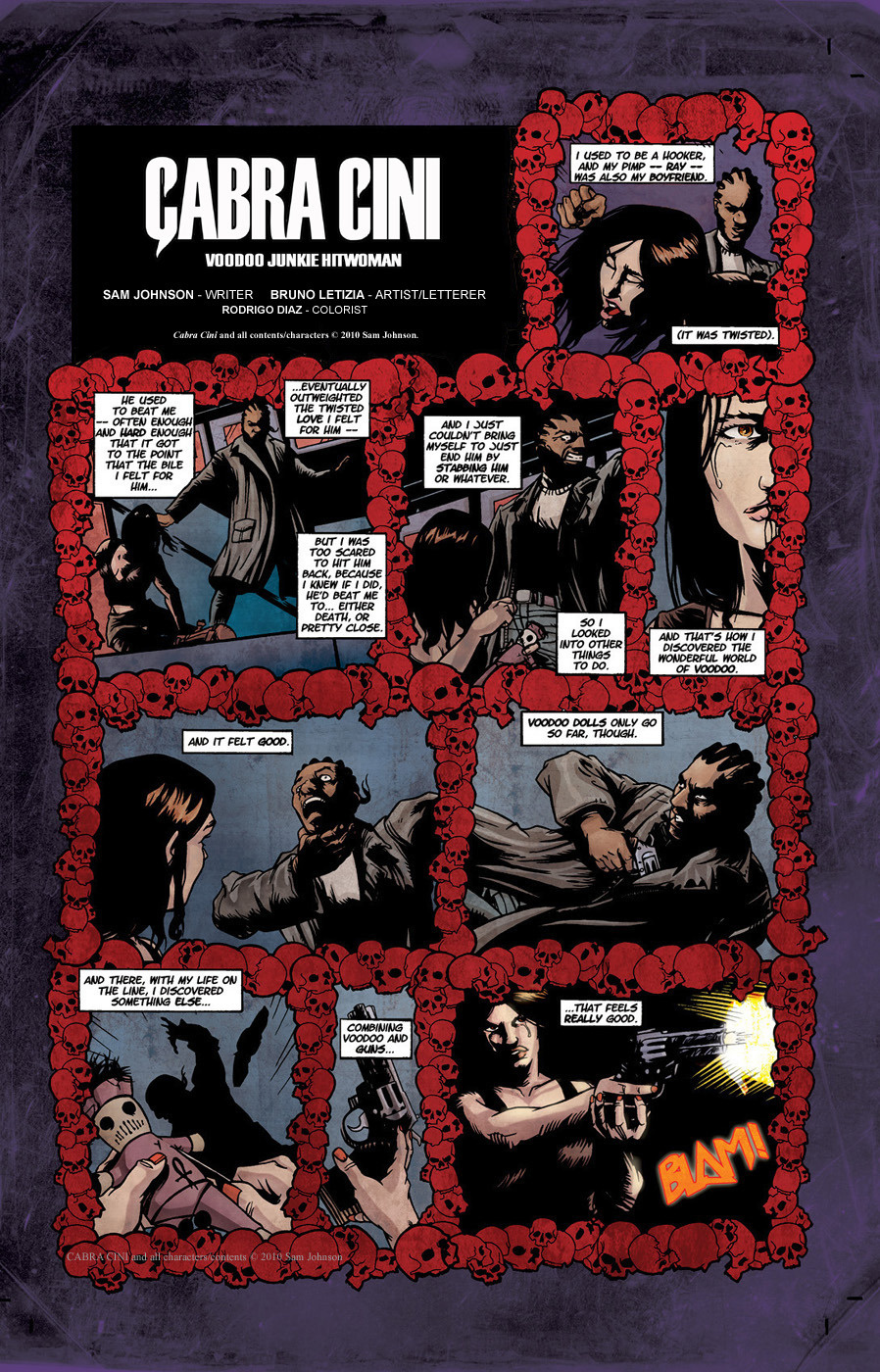Pop Verse spoke to Perth group Anton Franc‘s Jamie Kuzich about the band’s latest EP, All This Talk. Their folktronic sound has made them a hit as far away as Germany. They continue to make interesting music, with a focus on new and interesting sounds – but always at the heart of this, a song that could be played around any campfire. Whether you’re a musician, writer, or any other creative person, there are some interesting lessons to learn in this interview.
You can listen to the EP in its entirety on Soundcloud. Buy both their EPs from their official site.
My favourite on the new EP is ‘Dust Storm’, as it has a richly moody sound. Was there any specific that inspired the song? What about the inspirations/meanings behind other tracks on the EP?
‘Dust Storm’ began (much like ‘Letting Go’) as an experiment in writing with the Tres (see above). It began with the Tres/vocal melody from the verse and then grew instrumentally from there. This was a really fun song to build in the studio. Fun’s probably the wrong word, but we really wanted to create that thick stormy mood and played with a lot of sounds and effects to do so. We actually recorded the whole thing twice. We weren’t happy with the original rhythm section feel, so stripped it back to it’s bare bones to build it back up.
That mood inspired Josh’s lyrical content I think – essentially it’s a fairly transferable tale of regret and (lack of) integrity. An old man telling a younger man (or maybe a younger version of himself) of his disappointment for betraying his own ideals failing a crucial test of character in his youth.
Those themes of regret and existential angst are fairly well represented throughout the EP. ‘Boat Song’, somewhat like ‘Dust Storm’, paints an image of an old man realizing, probably too late, that his life’s priorities may have been misplaced. A realisation that his inability to choose between two loves may have cost him the one he now acknowledges to be the right one.
‘Hearts’ is a little more tangible. It began with the chorus hook that appeared in my head during the tail end of a long relationship. It’s not a particularly romantic notion, the propagation of a relationship that you know to be romantically dwindling. The ‘easiness’ of an established relationship from a practical perspective, even one becoming more and more devoid of personal connection, can sometimes be used as justification for it’s continued existence – it’s a pretty sad notion but it happens a lot. That’s the place ‘Hearts’ emerged from.
‘Moments’ is just pure existential angst. I actually only just learned the specific inspiration for the track from Josh, so I won’t reveal it here.
‘Water & Blue’ is probably the sore thumb thematically and lyrically on the record. It has no particularly deep meaning, though can be immediately related to by anyone who has sweated through a Perth summer without aircon – you’ve got no choice but to succumb to the heat and let it embrace you. This time last year, Josh and I (and our housemate, Pete) had just moved into a new house in North Perth. It’s a great house. But there’s no aircon in the bedrooms. In the days between Christmas and New Year last year it hit somewhere between 36-40 degrees every day, and our meager ceiling fans did little to abate the evening onslaught of heat. Pete’s boyfriend bought a tiny blue inflatable paddling pool that took up residence on our back lawn. I came home from work one afternoon to see 4 full grown hairy met crammed into it, seeking refuge from the heat. That’s the song.
I noticed that you use the ukulele in the EP. What do you think about the increasing popularity of the ukulele in popular music?
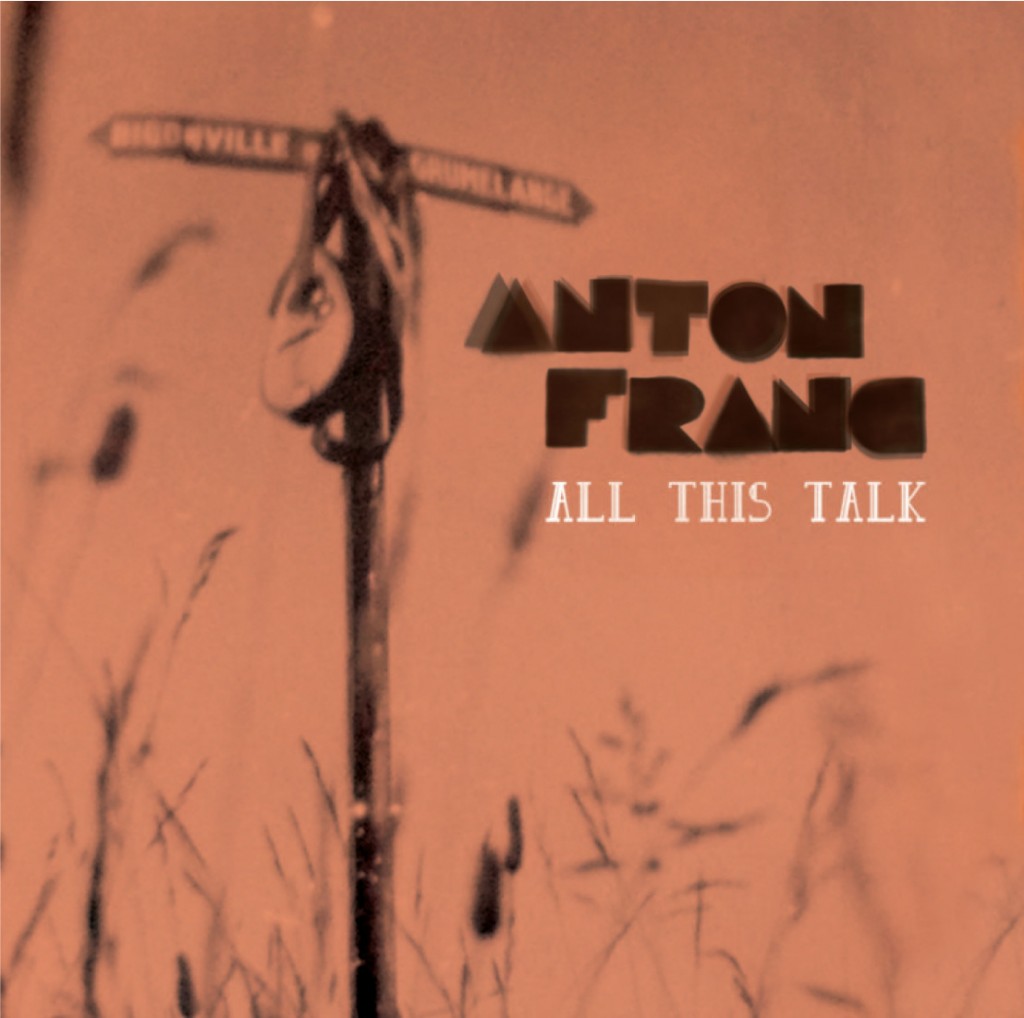 Yeah the uke did pop up a lot (3 of the 5 tracks have it on there – ‘Moments’, ‘Boat Song’ and ‘Hearts’.) At around the time when Josh and I were starting to play together again after moving back to Perth, I spent a week in Melbourne and decided to pick up a tenor uke to play around with. They’re pretty approachable instruments, and as a result it just happened to be what I had in my hands when we started to bring songs and ideas to each other. It complemented Josh’s guitar playing well and so it became my go to when we started playing shows as a duo and then stuck around with the full show now.
Yeah the uke did pop up a lot (3 of the 5 tracks have it on there – ‘Moments’, ‘Boat Song’ and ‘Hearts’.) At around the time when Josh and I were starting to play together again after moving back to Perth, I spent a week in Melbourne and decided to pick up a tenor uke to play around with. They’re pretty approachable instruments, and as a result it just happened to be what I had in my hands when we started to bring songs and ideas to each other. It complemented Josh’s guitar playing well and so it became my go to when we started playing shows as a duo and then stuck around with the full show now.
The uke is an incredibly easy instrument to make a sound on. It’s only got 4 strings and they’re not too close or too far apart from each other, and with a few chords you can make it sound cute. That’s probably why it’s becoming more and more ubiquitous. But because of those things, it’s an easy instrument to be lazy on, which a lot of its playing in popular music deteriorates towards (look at most of the innumerable ukulele covers on YouTube). The uke (especially the bigger ones) can have a beautiful, rich tone that can complement the voice and other instruments in a really interesting way, but played lazily it can sound really cheap and nasty. I try to approach it from the former…
When I first heard 2011’s ‘Letting Go’, I was blown away. The song was popular in Australia as well as Germany and Norway. Did your success make it harder to work on the follow-up EP?
Firstly, thank you.
The whole Letting Go thing was quite strange. The tune was the product of Josh and my first attempt at collaboration, and I think both musically and lyrically provided an opportunity for the both of us to get down on tape a whole bunch of ideas and feelings that we’d been stocking up for some time. It’s like the song had been being written for the 18 months prior. It wasn’t written and produced with any kind of official release in mind, but the collaboration seemed to work, so more tunes, eventually the 1st EP and its release seemed to be the natural progression. But people did seem to really connect with Letting Go. Having it picked up for the sync in Germany and Norway came out of nowhere, as did the airplay it received in certain parts of Australia. It did create somewhat of a specter when it came to put the next bunch of tunes together.
To be honest though, I don’t think that Letting Go’s popularity influenced the way we went about making this EP. But I think a lot of people had certain expectations about what this new bunch of tunes would sound like. And whilst that’s a good thing in some ways (for one, people will actually listen to it), it does mean that everything is judged against Letting Go, rather than on it’s own merits.
We definitely didn’t try to recreate the sounds on Letting Go on the new EP. The songs and production on All This Talk, have grown a lot from the 1st EP, though the sound may not be as similar to the 1st EP as some were hoping. The electronic aspects are a lot subtler and the arrangements are a little bit grander and a bit more ambitious at times, though I think the core aspects that worked on the 1st EP have definitely been developed on the new record.
What were the biggest lessons you learnt from writing for and recording the first EP? Did you manage to learn from previous mistakes when recording ‘All This Talk’?
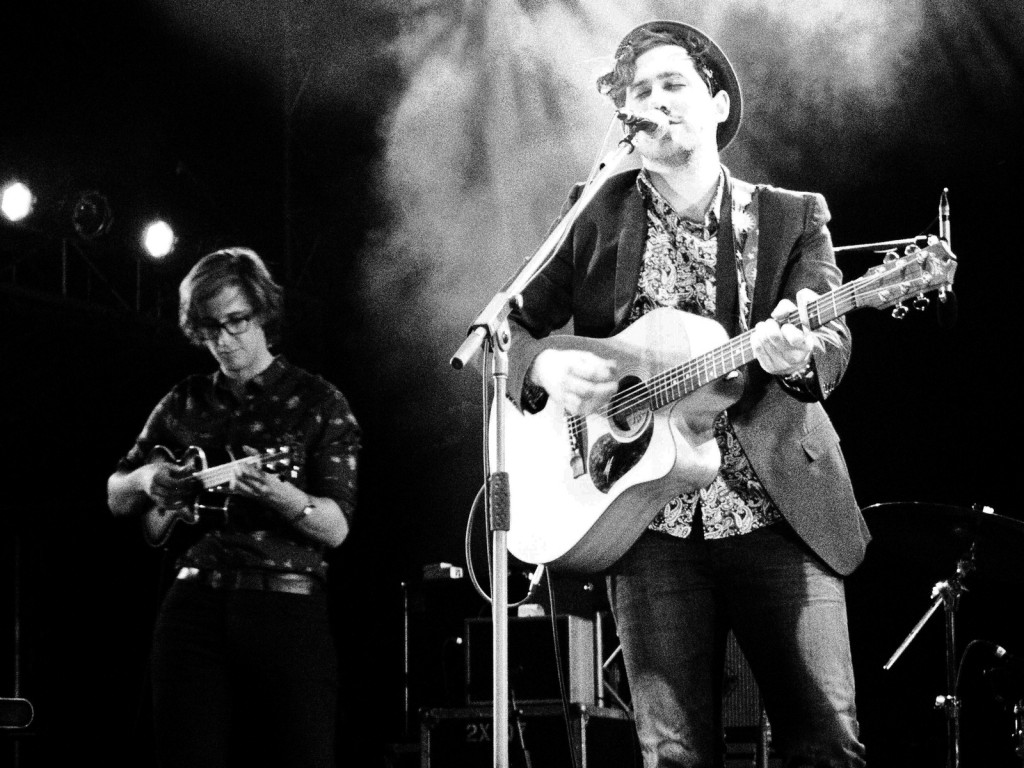 I’m not sure there were too many avoidable mistakes with the 1st EP to be honest. In hindsight it was such a beautifully under-thought record to make, mostly by necessity. Sure there were some recording techniques that were rough as guts, mostly as a result of the location we were in and the equipment we had with us (ie. The middle of nowhere and not much), but the process just happened as it happened. I guess we weren’t really working with deadlines or expectations or the pressure to ‘keep momentum’ going that inevitably arises once you start releasing things.
I’m not sure there were too many avoidable mistakes with the 1st EP to be honest. In hindsight it was such a beautifully under-thought record to make, mostly by necessity. Sure there were some recording techniques that were rough as guts, mostly as a result of the location we were in and the equipment we had with us (ie. The middle of nowhere and not much), but the process just happened as it happened. I guess we weren’t really working with deadlines or expectations or the pressure to ‘keep momentum’ going that inevitably arises once you start releasing things.
With this EP we had the luxury of working in a much more sophisticated environment, both within our own home studio (which had grown), and also at Studio Couch. But with that comes other pressures. It was definitely a more difficult record to make. There was a time pressure we felt that didn’t exist with the 1st record, not within the studio itself, but sitting over the whole process. There’s a certain pressure to keep releases coming once you put out an initial release, and due to a whole bunch of external factors (ie. life) this EP took a long time to make, longer than it should have.
You have developed a distinctive folktronic sound with both your EPs. Is this the kind of sound you intended to create? Are there any genres you would like to explore in the future?
Ahhh, the folktronica thing. When we first played ‘Letting Go’ to my housemate at the time, a house DJ no less, he responded after an appropriately pensive ponder with ‘I like it. It’s kinda folk… tronica…’ We burst out laughing, thinking he’d just made up a genre on the fly. Turns out he hadn’t. We appropriated it for our 1st set of bios and press releases etc, and people seemed to grab at it. It is a fun word to say.
At the time, both Josh and I had independently been dabbling with some electronic music techniques and saw our collaboration as a chance to expand on our experimentation. Having said that, we did make a caveat at the very start of the project that regardless how much we got into the electronic side of things, there always had to be a song at the core of things – something that could be stripped down and played around a campfire. So the sound was really a bit of a beautiful accident.
 Now, having said that – when it came to writing and then recording the tracks on All This Talk, we were simultaneously having to work out how to play the 1st EP live. Josh and I had moved back to Perth and were getting used to actually playing music in the same room, rather than 220kms apart. As a result, the tunes were (mostly) built from a more traditional approach and their initial phases of development occurred playing them live as (largely) an acoustic duo. I think that explains the difference in vibe between the two EPs really. The elements of electronic and organic sounds are still the same, but just there in different amounts.
Now, having said that – when it came to writing and then recording the tracks on All This Talk, we were simultaneously having to work out how to play the 1st EP live. Josh and I had moved back to Perth and were getting used to actually playing music in the same room, rather than 220kms apart. As a result, the tunes were (mostly) built from a more traditional approach and their initial phases of development occurred playing them live as (largely) an acoustic duo. I think that explains the difference in vibe between the two EPs really. The elements of electronic and organic sounds are still the same, but just there in different amounts.
The next phase will be different again. There aren’t any specific genres we flag that we want to tackle, but I think that now having our live setup much more integrated with our writing and recording tools we’ll be able to more easily marry the two approaches.
It was great to hear some different instruments on All This Talk. What instruments appear on the EP? What are some instruments that you’ve yet to work with but would love to include next time?
Thanks for noticing. I do have a bit of a tendency to pick up odd instruments along the way. It’s probably as much to do with my lack of attention span (and thus ability to knuckle down and master a single instrument) as it is a desire to utilize new sounds. A lot of the non-standard instruments we’ve used aren’t played in their traditional manner (such as the charango on the 1st EP and Tres on the new one), mostly because I lack the discipline to learn them in that way, but there seems to be something about picking up a new instrument that helps to unearth new approaches to writing and playing. It’s easy to get boxed into the same old patterns with familiar instruments, so picking up a brand new one can sometimes be a good solution to a writing rut.
String wise, outside of the standard array of guitars, the record features the tenor uke and Cuban Tres. The Tres I picked up in Cuba a few years ago – it’s a short-scale guitar-like instrument with 3 sets of paired strings, which tends to take the place of the right hand of the piano in a lot of traditional Cuban music. It’s got a really distinctive tone that cuts right through a mix, though has almost no sustain. It’s like the string players answer to a harpsichord. The only song on the record on which it appears is ‘Dust Storm’. I don’t think that’ll be the last one.
The tenor uke was my go to instrument in a lot of the writing and initial arranging phase of these tunes. It’s got quite a warm, resonant tone (which I guess aren’t adjectives commonly associated with the uke) and is a pretty intuitive instrument. It’ll probably get a bit of a rest for the next batch of tunes.
There are a fair few horns on the record, too. It wasn’t necessarily intentional but it did pan out that way. A good friend of ours, and an amazing Tenor Sax player, Jeremy Trezona made a lot of guest appearances live with us right from our first gig, up until he upped and left for the bright lights of LA – he did manage to stick around long enough to blow that killer solo on ‘Moments’ though. ‘Water & Blue’ allowed me to get stuck into some horn arranging which was a new thing for me, but a lot of fun. I’ve always wanted to record a French Horn, and was able to indulge myself finally. Another old friend, Elliot Hughes, played trumpet in the session – he’s quite an accomplished avant-garde jazz composer and arranger now, so it was a little intimidating having him play my arrangements in the studio.
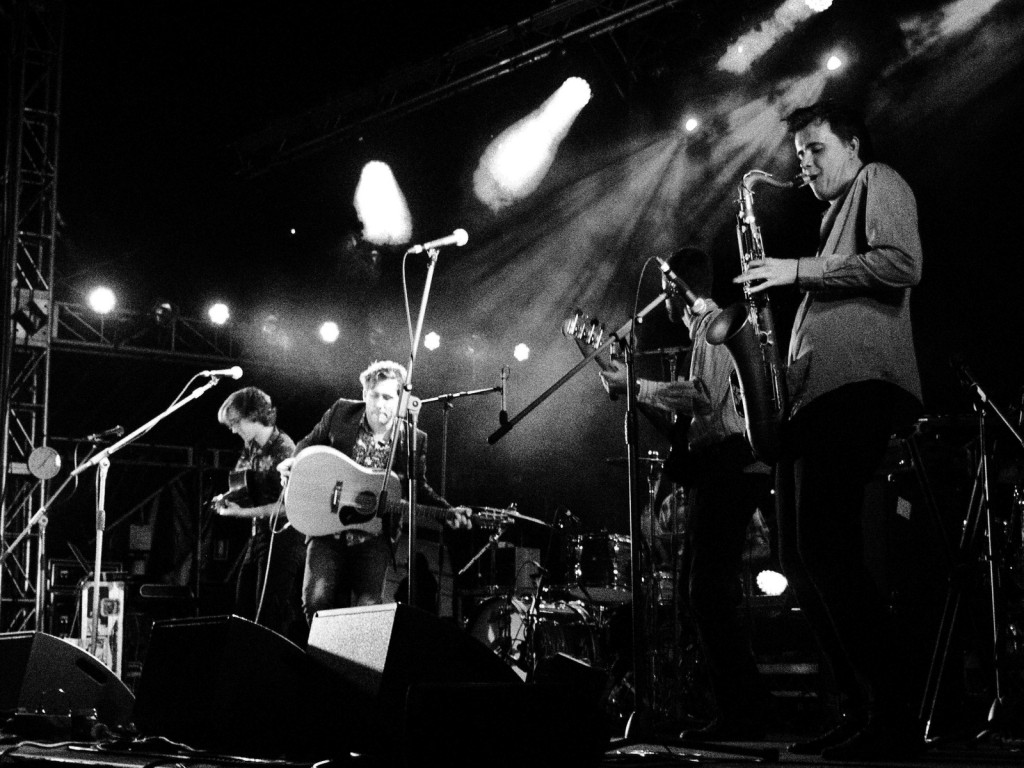 I used to play clarinet back in high school. I was alright at it, but haven’t picked it up for about 10 years. When it came to finishing off ‘Hearts’ (and thus the record – it was the last tune we took to the studio), we couldn’t quite work out what instrument to have take the little flourishing hook that pops in half way through. We’d always assumed it’d be piano but for whatever reason it didn’t vibe. So I dug my old clarinet up (complete with sticking and malfunctioning keys) and managed to squeeze a not too terrible tone out of it to put the last little piece of gloss on the EP.
I used to play clarinet back in high school. I was alright at it, but haven’t picked it up for about 10 years. When it came to finishing off ‘Hearts’ (and thus the record – it was the last tune we took to the studio), we couldn’t quite work out what instrument to have take the little flourishing hook that pops in half way through. We’d always assumed it’d be piano but for whatever reason it didn’t vibe. So I dug my old clarinet up (complete with sticking and malfunctioning keys) and managed to squeeze a not too terrible tone out of it to put the last little piece of gloss on the EP.
There is an array of old analogue synths (and a mellotron!) throughout the record as well. Our co-producer, Matt Gio, is a bit of a hoarder of vintage synthesizers and has a killer ear for dialing up tones that sit in the mix perfectly.
I’m not sure exactly where we’ll move, instrument wise, for the next phase of tunes. We played around a little bit with sampling and manipulating strings on this record (that very first sound in ‘Water & Blue’ as an example) that I think we’ll build on. There’s an old lap steel guitar sitting on our studio that I’ve been meaning to get my fingers around for a while.
For the benefit of other artists out there trying to get their first EPs released, can you tell me a bit about how you managed to get your first EP released?
As I’ve alluded to, it’s getting easier and easier to get your music into the public domain. The 1st EP was very DIY in all phases. We recorded it with a pretty simple recording set-up, Josh mixed it in my parent’s basement, and the mastering… well mastering’s a dark art that no-one understands except mastering engineers.
Once we had the masters in our hands and some pretty artwork, we just whacked the record up on our Bandcamp page. We actually then pulled it down and decided to ‘do it properly’ which in our heads meant ‘release and service a single first, then put the whole EP out.’ So we went old school, and sent a bunch of physical CD-Rs of ‘Letting Go’ to any community radio station we could find a mailing address for, and bombarded bloggers with it’s mp3 and our press release. ‘Letting Go’ was available as a free download for a while. People seemed to like it, so we then repeated the same process for the EP.
Digital distribution (ie. Getting your music on iTunes and its brother and sister mediums) is accessible to anyone these days, and plenty of online platforms allow you to sell both digital and physical forms (we used Bandcamp).
So really, the mechanics of ‘releasing’ music are now much more accessible than they used to be. The main hurdle still though is getting people to actually listen to it.
What advice would you give anyone else trying to get their music out there?
 Just make it, put it out and don’t overthink it. Don’t get overwhelmed or sucked in by the business side of the music industry. If you’re writing good tunes, people will hear them – you can waste plenty of time when you should be writing, recording and performing overthinking release plans and PR strategies. Just write good songs, record them and release them.
Just make it, put it out and don’t overthink it. Don’t get overwhelmed or sucked in by the business side of the music industry. If you’re writing good tunes, people will hear them – you can waste plenty of time when you should be writing, recording and performing overthinking release plans and PR strategies. Just write good songs, record them and release them.
The accessibility of music right now is a bit of a double edged sword – whilst it’s so easy to release your music independently, there is such a swathe of sound out there that it’s easy to get drowned out by it all. Because of this, it’s easy to waste heaps of time trying to double think ‘the industry’ and put all of your creative energy into your marketing instead of your music. We’ve fallen into this trap a few times.
How do you deal with egos and criticism?
How to answer this without angering many people – that’s the real question here…
Being aware of your own ego, and not letting it get in the way of the best interests of the song is hard sometimes. It’s easy to become attached to particular ideas, and sometimes you find yourself advocating for them, be it in the studio or rehearsal room, even if you’re not sure if they’re that good, just because they’re your ideas. It does cloud objectivity, the ego.
Conversely egos of other band members take work, too. But I won’t answer that here. But egos do need to be caressed and treated delicately, like a fresh batch of eggs. They also need to be treated sternly like a disciplinarian teacher. We all have egos that are easily bruised, but I think we’ve worked out the dynamic well.
Criticism, well that’s another kettle of fish really. Dealing with criticism really comes down to keeping the confidence you have in your creations intact but still taking on board what has been said. It also depends on who’s doing the criticizing. We got slammed in a live review recently by a reviewer who clearly had decided what he was going to write before he even arrived at the show. He’d lumped us into a particular ‘scene’ that he had some beef with (whether we even really are a part of said ‘scene’ or sound is another thing entirely…) and used us as a bit of a flogging post, basically writing us off entirely without particularly commenting on the music. Now that stings (it was a punch in the guts really), but by the same token, there’s not much to really take from it other than to say ‘well, I guess we may as well just give this whole thing up’ which clearly isn’t a particularly healthy reaction. So you’ve just got to ignore it, so long as you have faith in the artistic value of what you’re producing.
What touring plans do you have? Where and when can people catch Anton Franc live?
We’ve just finished a string of WA shows following the release of All This Talk – a big launch show, and then sets for the WAM and Beaufort Street Festivals. Our live set is really vibing at the moment, but we’re letting the dust settle over Christmas and New Year before hitting 2014. We’re hoping to tour the show over on the East Coast in the 1st quarter of next year – plans being made currently. It would be amazing to get over to Europe at some stage, time, money +/- invitation pending.
But in the interim Josh and I are taking things back to where they started in a few weeks, playing a duo set at the new converted Moana building in Perth this weekend.
If you could adapt any book to the screen and write all the music for the soundtrack, what would it be?
I don’t have a fancy answer for this one unfortunately. I’m churning book titles over in my head, and Isabele Alende’s Eva Luna keeps popping up. I can’t quite articulate why, but there’s something about Latin American magical realism that sits well with the way I like to approach the blend between sound and songwriting.
Who are your fantasy collaborators (alive or dead)?
Beck for me.
I’d guess Mr E for Josh. But I’m sure he’ll correct me.
If your band was an indie-pop group by day and a crime fighting team by night, what would all your alter egos be and what would you be known as (think the Avengers, the Justice League, the Planeteers, the Power Rangers, etc)?
I pitched this one to the band:
Josh reckons we’d be called the Francenfighters.
Ellis would be Horus, Egyptian God of the Birds. He’s got a really big nose.
Matt would be some kind of smiling assassin who disappears very quickly without anyone noticing. His super power would also be having the ability to turn up to rehearsals and shows carrying nothing more than a lead, despite the fact that he plays the two largest instruments on the stage.
Jamie would be ‘bring back the bureaucracy boy’ fighting for an accountable way to conduct public relations and project planning. Also the clear leader.
Josh can be Eyeliner Bear – the handsome burly unit who fights the crime of discrimination and teaches people that they can be themselves.
 Pop Verse Pop Culture Universe
Pop Verse Pop Culture Universe
